- Home
- Sarah Woodbury
Winds of Time Page 3
Winds of Time Read online
Page 3
He rose and I followed him from the room, through a doorway, up a small stairway to another room on the upper floor. The room was spacious and well lit with candles on the table and the window shutters thrown wide. Sunlight poured into the room from a west-facing window. Contrary to his promise, no food appeared and Sir John moved to stand before the fireplace. He prodded the lit logs with a poker.
“So, Mistress Margaret,” he said to the flames, “you appear to be a most unusual woman. It is time to tell me of yourself.”
I swallowed hard. “Myself?”
Sir John rested a forearm on the mantle and turned to look back at me. “Yes, Mistress. Yourself.” Dry amusement filled his voice. “I await with great interest your explanation of what brought you to the Roman fort in time to help my nephew.”
I had known that he would ask me this. I’d labored on a viable story during the ride to Carlisle and then in the bath, discarding tale after tale as ludicrous and unbelievable.
“Well then,” he said after a long pause which I didn’t fill. “We will start with your place of birth, Margaret. Who is your father and where does he live?”
I swallowed hard. A softball question, sort of, if one had a mind to tell the truth.
In the silence that followed, he seated himself in a throne-like chair that had been set before the fire. He rested his elbows on the arms of the chair, folded his hands together, and pressed the tips of his forefingers to his lips. He studied me for a while longer and then gestured that I should post myself in front of him, three paces away. It was like being sent to the principal in grade school.
I decided I couldn’t postpone this conversation any longer. “My father is Bran ap Morgan, my lord, of Gwynedd.”
“Of Gwynedd!” Sir John straightened and dropped his hands so that he gripped the arms of the chair. “Thus, the reason for your strange accent and your outrageous manner. It is said that the Welsh allow their women too much freedom and I believe it. And your grandfather?”
This was it, the first plunge into deep water. “On my mother’s side, my grandfather was Goronwy ap Ednyfed Fychan, the former seneschal to Prince Llywelyn, and the father of one of his current advisors, Tudur.”
“Ah yes.” Sir John sat back, looking satisfied. “You have explained much in only a few words, particularly your royal bearing and gait.”
Stunned relief rushed through me, though not because of Sir John’s satisfaction with my story. Rather, it was his acceptance of my use of the word ‘current’. Llywelyn had a current advisor! He is alive! My Llywelyn is alive! The knowledge left me so weak at the knees I almost collapsed to the floor.
I wished I could run from the room and shout my joy to the sky, but instead I had to stand there and calmly answer Sir John questions. Anything else wasn’t going to get me back to Wales.
Sir John gestured towards me with one hand. “Pray continue. It is a long way from Gwynedd to Carlisle, is it not?”
“Yes, my lord.” I paused, marshalling my thoughts, but more confident now that I had hope for the future. “I spent the first fifteen years of my life at the court of Prince Llywelyn, under the guidance of my grandfather. But with Dafydd’s betrayal of the Prince, my life changed. My father was killed in the fighting and my mother chose to leave Wales and return to her mother’s house, taking me with her. My grandfather was not married to my grandmother, you see, who was from Shrewsbury, on the Welsh border.”
“Yes, I know it,” Sir John replied. “I have accepted the hospitality of the Benedictine monks there.”
“At the Abbey of St. Peter and St. Paul?” I asked, silently thanking Ellis Peters and her Brother Cadfael mysteries.
“Indeed,” replied Sir John. “Pray continue.”
“I had not lived in Shrewsbury long before I was married to an Englishman at my mother’s insistence. She feared for my future were I to return to Wales, even though Llywelyn was crowned Prince of Wales around this time.”
“He was crowned nearly twenty years ago,” Sir John said.
“Yes, my lord,” I said, wondering why he thought to comment on it. “I had a daughter, and then a son. Shortly after our son’s birth, my husband began to change.”
Sir John leaned forward. “Change in what way, Margaret?”
“He … he began to turn away from the Church, my lord,” I said, in a rush. “He began to leave the house at all hours and not return until dawn. It only happened a few times a year at first, and then every month, until …” I stopped. I eyed Sir John carefully, but he seemed riveted.
“Until what?”
“Until he confessed to me his worship of Mithras.” As I spoke, I inadvertently looked down at my feet. If Sir John had studied psychology he would have known that this indicated I was lying through my teeth.
“Ah, now we reach the heart of it. What then?”
“With Prince Llywelyn’s recent victories …” I paused to see how I was doing and found Sir John nodding. Before he noticed my clenched fists, I hurried to continue my story.
“My daughter and son are grown now and I could leave them. I sent them to the Prince’s court. I, in turn, accompanied my husband to Newcastle-on-Tyne, where he insisted we could lodge with his great-aunt whom he hadn’t seen in some time. When we arrived we found that she had died the previous year. We had no place to stay and little money. My husband paid an innkeeper for a few nights of meals and lodging for me, and disappeared with only the clothes on his back.
“I didn’t know what to do when he failed to return. At last, I became determined to find him and make a final attempt to draw him away from these evil doers. I cut down some of his clothes for myself and, dressed as a man, set out to find the location of their worship. Over the years I had learned a little of their practices. I confess I listened to his private conversations with his companions when he thought I was asleep. I had learned that a night which promised both a full moon and a clear dawn would bring them out. I knew that the wall built by the Romans was the center of Mithras worship in England. Several days ago, I set out from Newcastle along the wall.
“When I encountered a fort and its altar to Mithras—not where I found your nephew, but a location further east—I realized I had reached the right place. I hid myself. This was two nights ago. I didn’t have to wait long before men came, dressed in long white cloaks and hoods. My husband …” I bent my head and bit my lip. I had really fallen down the rabbit hole here. “My husband was one of them. They were in the middle of the ritual when the Scots—perhaps the same ones who captured your nephew—rode out of the dark and killed them all.”
“I am sorry for your loss, Margaret,” Sir John said, not sounding sorry at all. “So you expect me to believe that you followed your husband to Newcastle, dressed yourself as a boy, walked along the wall for several days, hid yourself in the fort, witnessed a Scot raid, and then rescued my nephew.”
“Yes, my lord,” I said, my throat dry. “I do.”
“The surprising thing,” Sir John said, “is that I do believe you. I’ve known about the Mithras cult for some time and have tried to stamp it out in Carlisle. What makes me wonder, however, is why in all of this, you chose to lie about your age?”
I blinked. My age was the one thing—maybe the only thing—I absolutely had not lied about. “My age, my lord?”
“Yes.” Sir John rose to his feet. He stood in front of me, his hands on his hips, and leaned down to look directly in my face. “Your age!”
He straightened and walked in a full circle around me. I looked towards the fire, uncertain.
“I do not believe for one moment that you are, what? Thirty-six or seven?” Sir John continued. “Do you think your woman’s folly will be more easily excused if you mark your age as that of a grandmother, instead of the girl you are?”
Sir John stood in front of me once more. I averted my eyes and he smiled as he took my chin in his hand and made me look at him.
“Do you care to revise how old your children are, my dear? Perhaps you wo
uld like to mention that you went to Shrewsbury with your mother at Prince David’s second defection, not his first. Even then, that would make you twenty-five.” He turned my face from side to side, inspecting me. “That might be possible.”
He released my chin and I returned my eyes to the floor. He sat in his chair again. Silence descended on the room. Finally, I decided that I had lied about everything else, I could lie about this too if it made Sir John happy and distracted him from the rather extensive falsehoods in the rest of my story.
I sighed. “My children are six and eight, my lord.”
“Women’s foolishness knows no bounds, apparently,” Sir John said, a ring of satisfaction in his voice. “I do not know how you thought I would believe you had achieved such an age.”
“I did not think, my lord.” A fit of giggles threatened to overwhelm me. My shoulders began to shake from the effort of swallowing them.
“No need to cry, my dear,” Sir John said. “You have experienced much in the last few days. Thank you for your care of my nephew. You may go.”
Without another word, I turned from him and fled. I raced down the stairs and then down a second flight to the bathing room. I had a mind to leave Carlisle immediately. With all the comings and goings in the castle, I could hide among the general populace moving through the front gates and lose myself in the city.
I pulled up short as I entered the room. It had been completely cleaned and my clothes—and everything I’d secreted inside them—were gone. I closed the door behind me and leaned back against it. Resting my head against the door, I began to laugh—so hard I couldn’t stop—until I really did begin to cry.
Chapter Four
I lay on a pallet that night, in a room with several women of the court, worried that it might be a long time before I could figure out how to leave. I had no money or friends, no resources other than my former husband’s diamond ring (the pawning of which might take some doing), and I hadn’t been able to track down my few possessions. The maidservant I questioned only shrugged and said they’d been disposed of. Great.
The next evening at dinner, however, Sir John informed me that he was making arrangements for me to find lodgings at the nunnery of Armathwaite, seventeen miles southeast of Carlisle.
Startled, I focused on my food, trying to think how to respond. I hadn’t anticipated this particular side effect of looking twelve years younger than my true age. Sir John was correct to send me away. Although women lived among his court, I had no guardian, no authority over me besides what he chose to wield. It made it impossible for me to stay at the castle for more than a few days.
“A nunnery?” I said.
“Yes, of course. It isn’t far. You will leave in the morning—early, mind—and should arrive at the nunnery before noon. I will compensate the nuns for your keep until such a time as you are able to make your way south to Shrewsbury.”
To Sir John, this was the perfect solution for me. The nuns wouldn’t require me to take orders, but they would provide me a safe place to stay. He could ensure that I had the same shelter and food he was giving me, but without the hassle. That was all very well and good, but if I was to buy passage to Wales, I needed more than this. Thus, after the meal, I followed Sir John as he left the table. Pulling my the diamond ring from under my dress where it had been resting on the chain around my neck, I held it out to him.
“My lord, would it be possible to exchange this ring for gold to pay for my keep and passage south?”
Sir John glanced at my face and then gazed at the ring, though he didn’t touch it.
“This ring is worth a great deal, Margaret,” he said. “May I ask how you came by it?”
I had been reluctant to approach Sir John because I feared he would ask this question. The ring was modern, of course, but I’d dirtied it up a bit and I hoped it could pass for medieval more easily than I could. “It was a gift from my grandmother, before I set out to Newcastle with my husband. My grandfather had given it to her many years ago, but she gave it to me because she feared for me. I am loathe to part with it for that reason, but I cannot be a burden to you.”
Sir John shook his head. “My dear, you must keep it. I am in your debt for the life of my nephew. Without question, I will provide the nunnery with means to account for your stay with them, and you personally with enough gold to allow you to travel where you will. I would neither have you sell this, nor take it from you in compensation for my care of you.”
With a nod of dismissal, Sir John left me and entered his office. I watched him go. As had happened the first time I’d come through the veil that separated my world from this one, I had found shelter, protection, and aid. How little I had known of the people of the past, even now with my advanced degrees in the subject, until I lived among them.
The next morning, I headed to the bailey where my escort of men and horses waited. I was to travel with a young girl, Elizabeth, and three of Sir John’s men. Elizabeth had a vocation to be a nun, so Sir John was providing her the opportunity to pursue it. I didn’t know their connection, but as in my case, it seemed he was paying for her out of the goodness of his heart.
I was apprehensive, having involved myself in a permanent lie that looked to stretch on for the foreseeable future—but was less worried than I’d been. I wasn’t sorry to see the last of Sir John and Carlisle, especially if it meant getting me a little bit closer to Wales.
The travel consumed the morning and I forced myself to look around me, rather than dwell on my inner uncertainties. The Lake District of England is almost always lush and must have had a wet summer, because the streams were full and the grass was green. The country consisted of rolling hills, down to the little pocket of Armathwaite in which the nunnery nestled, at the junction of the rivers Coglin and Eden.
I followed the course of the Eden with my eyes. That river would lead me to the sea, and Wales, if only I could find a way to traverse that distance—a distance made all the greater because the only way to cross it was to go on foot, horseback, or by boat. Where was Marty and his plane? I felt bad at how lost he must feel and hoped he’d put the plane down further north, and found succor there.
The road widened as we came before the broad gates of the nunnery. The walls were comprised of a weathered, dark stone that I found welcoming instead of ominous. Sir John had told me that the nunnery was founded shortly after the Norman conquest in 1066. While technically within the jurisdiction of the Diocese of Carlisle, it treasured its isolation and independence. Apparently, the prioress was newly elected, but Sir John had heard good things of her. I was sure that Sir John was delighted to dump me on her, feeling his duty to me now done.
And so it turned out. We were greeted with courtesy. Women whisked Elizabeth off to the far reaches of the nunnery. An elderly nun showed me to a small cell with a pallet on the floor and a washbasin stand against one wall. A small window (no glass, but a shutter) overlooked the gardens. As the door shut behind her, I found myself releasing a breath I hadn’t known I was holding. For as long as it took to find passage to Wales, I felt I could be safe here.
The nun said that I was free to wander the grounds that afternoon, which I did after washing my face and hands. I spent several hours exploring the gardens and the pretty walk along the river. At the bell, I returned, hoping for dinner, but a prayer service was held before the meal. I found a place at the back of the church. After the service, a nun led me to the private rooms of the prioress, where she said I would dine.
When I walked into the room, the prioress stood and we contemplated each other for a minute before I remembered myself and bobbed a curtsy. She bowed her head regally and indicated that I should sit in a chair on the other side of her desk.
“Good evening, Reverend Mother,” I said, taking the offered chair. “I am most grateful to you for taking me in.”
The woman tilted her head and gave a slight smile.
“You may call me ‘Prioress Edyth’, if you will,” she said. “Sir John was most
gracious in his request, and generous in his allowance.” She waited for me to settle myself in front of what looked like an excellent roast mutton before she continued. “I was made to understand that you are a widow, with children. You seem quite young to have had so much befall you.”
“Prioress,” I said. “I would not like to continue with you the same misunderstanding I had with Sir John. I must tell you that I am thirty-seven years old, and my children are much grown.”
She narrowed her eyes at me. “You do not look it. Many women would pay a great deal of money for your beauty secrets. Fortunately, we don’t have such desires here. You will be quite safe.”
Was she mocking me? Surely she was, but I couldn’t tell from her serene expression. I swallowed hard. The turnip I’d just eaten stuck in my throat.
“I have heard something of how you came to be among us from Sir John’s letter,” Edyth said. “Is there anything you would like to add?”
“I do not know, Prioress Edyth, for I haven’t read Sir John’s letter,” I said.
Edyth looked at me sharply. “So you read?” She tilted her head again. “You could be of benefit to our priory, but I understand that you desire to travel to Shrewsbury? May I ask your purpose, for Sir John has not related it here. He says that you are originally from Wales, from the royal court, even.”
Instead of rendering her words entirely in English, the prioress used the Welsh word for Wales: ‘Cymry.’
She gazed steadily at me with slate-gray eyes and a calm face. I guessed that she was about my own age—my real age. I found myself facing, for the first time, a woman from the thirteenth century with whom I sensed an actual connection. She was also quite strikingly beautiful. I couldn’t see her hair, but thought it might be dark, like her brows and lashes, and I imagined that if she were dressed as I was, she could have married well above her rank.
I decided to take a risk. “My name is Marged,” I said, replying to her in Welsh. “I am recently widowed and I hope to return home to my children, who are staying with my grandfather’s family in Gwynedd. It is to Wales that I would like to travel.”

 The Good Knight
The Good Knight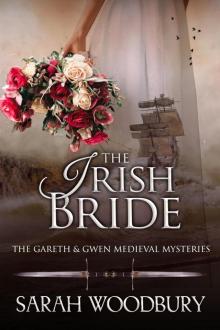 The Irish Bride
The Irish Bride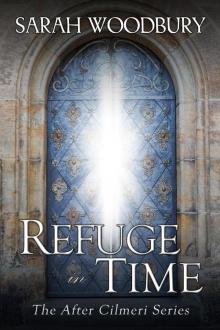 Refuge in Time
Refuge in Time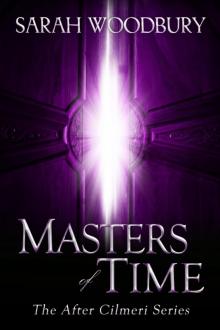 Masters of Time
Masters of Time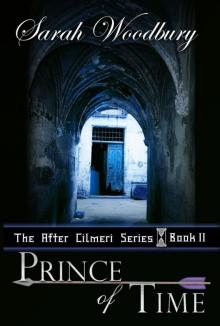 Prince of Time (Book Two in the After Cilmeri series)
Prince of Time (Book Two in the After Cilmeri series)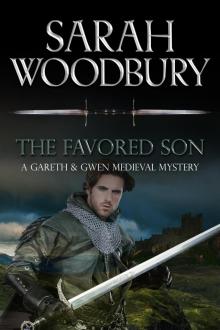 The Favored Son
The Favored Son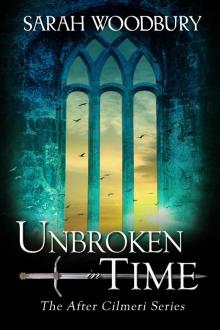 Unbroken in Time
Unbroken in Time![[The Lion of Wales 01.0] Cold My Heart Read online](http://i1.bookreadfree.com/i/03/22/the_lion_of_wales_01_0_cold_my_heart_preview.jpg) [The Lion of Wales 01.0] Cold My Heart
[The Lion of Wales 01.0] Cold My Heart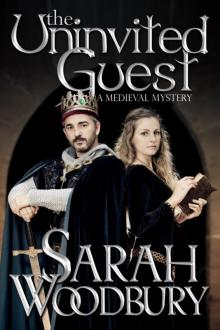 The Uninvited Guest
The Uninvited Guest The Pendragon's Blade (The Last Pendragon Saga Book 2)
The Pendragon's Blade (The Last Pendragon Saga Book 2)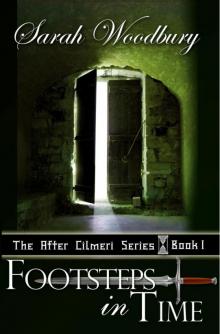 Footsteps in Time
Footsteps in Time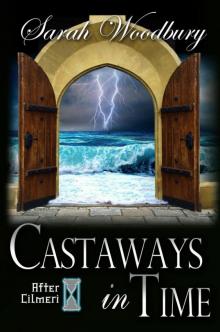 Castaways in Time (The After Cilmeri Series)
Castaways in Time (The After Cilmeri Series) Winds of Time
Winds of Time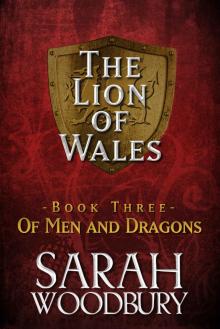 Of Men and Dragons (The Lion of Wales Book 3)
Of Men and Dragons (The Lion of Wales Book 3)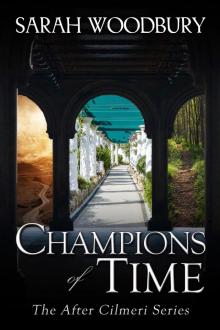 Champions of Time
Champions of Time The Pendragon's Challenge (The Last Pendragon Saga Book 7)
The Pendragon's Challenge (The Last Pendragon Saga Book 7) Rise of the Pendragon (The Last Pendragon Saga Book 6)
Rise of the Pendragon (The Last Pendragon Saga Book 6) The Worthy Soldier
The Worthy Soldier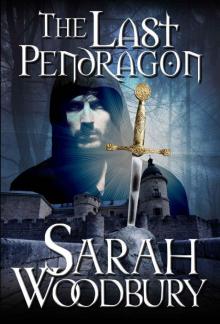 The Last Pendragon (The Last Pendragon Saga Book 1)
The Last Pendragon (The Last Pendragon Saga Book 1)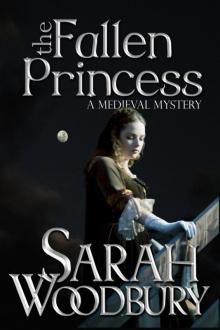 The Fallen Princess
The Fallen Princess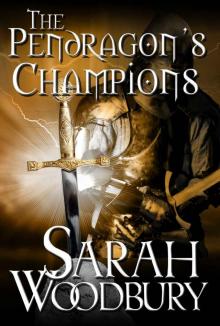 The Pendragon's Champions (The Last Pendragon Saga Book 5)
The Pendragon's Champions (The Last Pendragon Saga Book 5)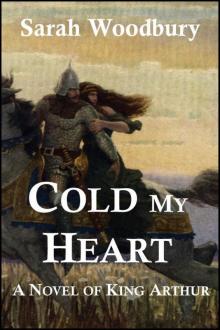 Cold My Heart: A Novel of King Arthur
Cold My Heart: A Novel of King Arthur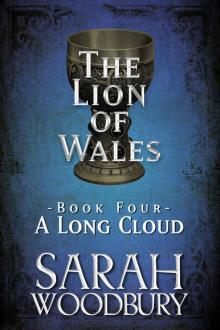 A Long Cloud (The Lion of Wales Book 4)
A Long Cloud (The Lion of Wales Book 4) Frost Against the Hilt (The Lion of Wales Book 5)
Frost Against the Hilt (The Lion of Wales Book 5)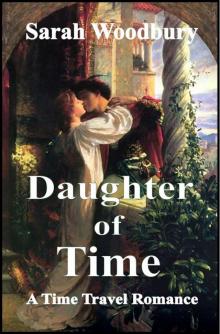 Daughter of Time: A Time Travel Romance
Daughter of Time: A Time Travel Romance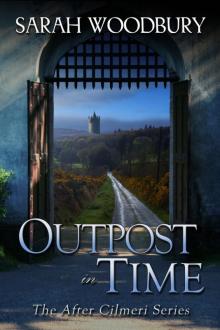 Outpost in Time
Outpost in Time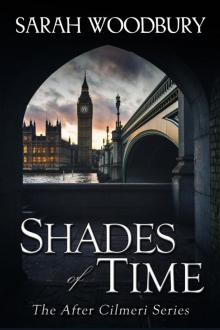 Shades of Time kobo
Shades of Time kobo The Pendragon's Quest (The Last Pendragon Saga Book 4)
The Pendragon's Quest (The Last Pendragon Saga Book 4)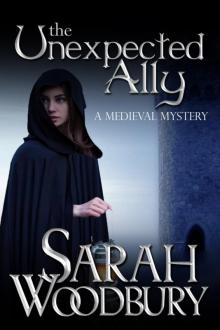 The Unexpected Ally
The Unexpected Ally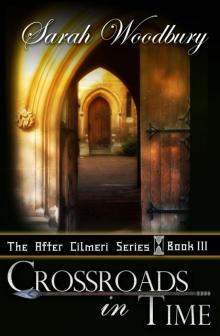 Crossroads in Time (The After Cilmeri Series)
Crossroads in Time (The After Cilmeri Series)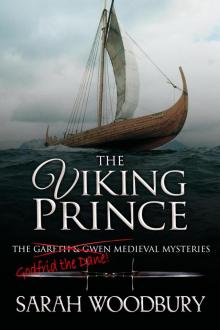 The Viking Prince
The Viking Prince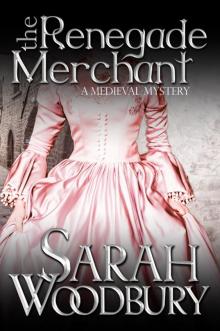 The Renegade Merchant
The Renegade Merchant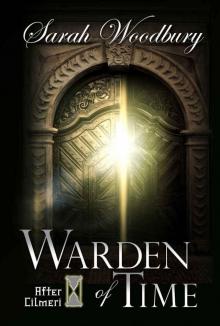 Warden of Time (The After Cilmeri Series Book 8)
Warden of Time (The After Cilmeri Series Book 8)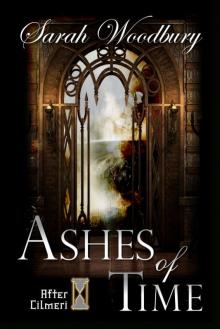 Ashes of Time (The After Cilmeri Series)
Ashes of Time (The After Cilmeri Series)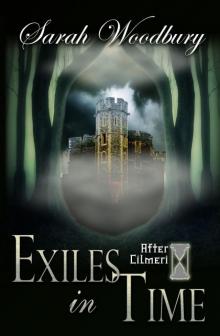 Exiles in Time (The After Cilmeri Series)
Exiles in Time (The After Cilmeri Series)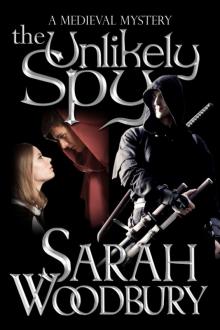 The Unlikely Spy
The Unlikely Spy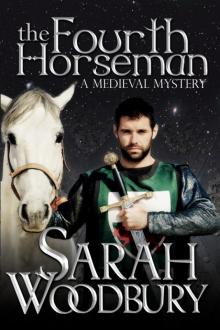 The Fourth Horseman
The Fourth Horseman The Oaken Door (The Lion of Wales Book 2)
The Oaken Door (The Lion of Wales Book 2) Song of the Pendragon (The Last Pendragon Saga Book 3)
Song of the Pendragon (The Last Pendragon Saga Book 3)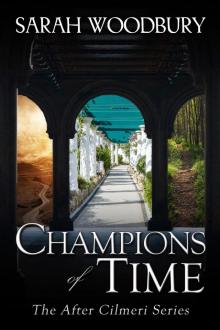 Champions of Time (The After Cilmeri Series, #13)
Champions of Time (The After Cilmeri Series, #13)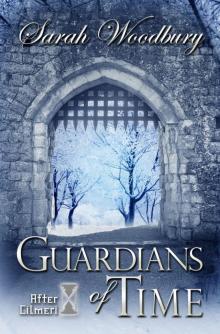 Guardians of Time
Guardians of Time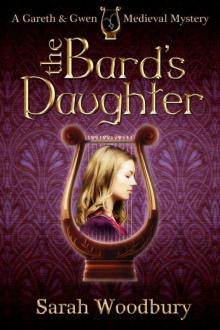 The Bard's Daughter (A Gareth and Gwen Medieval Mystery)
The Bard's Daughter (A Gareth and Gwen Medieval Mystery)